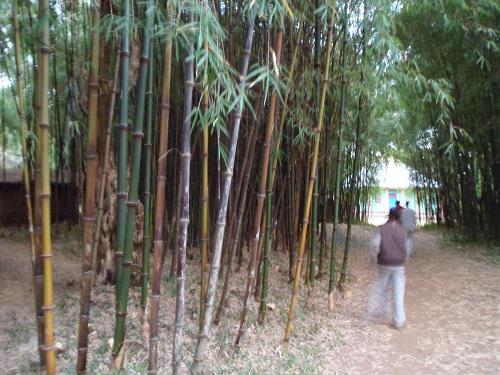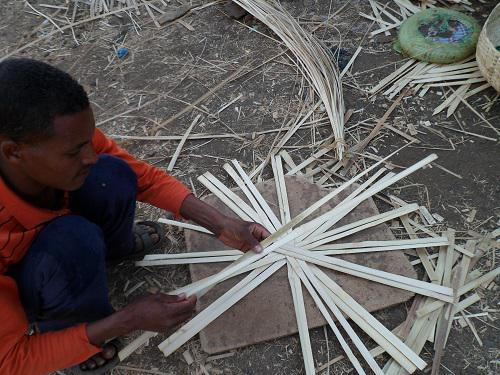Tefera Belay Endalamaw
Other projects
7 Dec 2011
Non Timber Forest Products Innovation and Commercialization in Ethiopia: Implication on Forest Conservation and Local Livelihood
Train potential artisans and establish community based bamboo enterprise so as to foster prudent utilization of ecological resource and improve rural income from bamboo crafts

Non-timber forest products (NTFPs) are essential community resources managed in forest and agroforest forms. Most NTFPs have proved significance in harmonizing livelihood needs of communities and conservation of biodiversity. Bamboo is one of these product categories with ample potential for economic development and forest conservation. In order to optimize these dual potential, the need for value addition to reduce pressure on the resource base and increase income per unit of ecological resource consumed is increasingly recognized. Moreover, the proportion of benefits accrued for communities will be higher if the value addition practice started right at the production area and by the communities themselves. Therefore, assisting communities for developing community based craft enterprises is assumed as one of the pathways towards the dual goal.

Previous study shows that existing craft products though of inferior quality, have medium to level of market and is reported as growing. Moreover, consumers are complaining about the quality and durability. Therefore, the assumption is that if the product quality improved, these growing consumers will not shift to other substitutes. Moreover, tourism is a major market niche for craft products and is growing in about 10 percent per year in Ethiopia. The district is on the major tourist route. Thus, craft workers can benefit from this growing industry. Similarly, tourism service providers are growing and buy several product types for decorating their recreation houses. Therefore, working on technological capacity building of communities tackles one of the key problems.
As a result, this project envisages to implement an ambitious community oriented action research and development at the grass-root level taking bamboo as a pilot product. To this end, the project will provide training in bamboo processing and craft design for participatory selected, interested youngster with basic education. The project will also provide basic entrepreneurship training. Trainees will be encouraged for establishing community based enterprises and if willing will be technically assisted. The response of communities and training impact will be meticulously and regularly monitored and lessons will be recorded for up-scaling of the innovation.